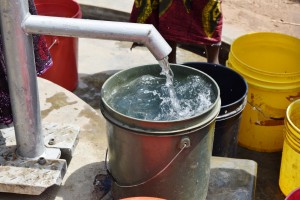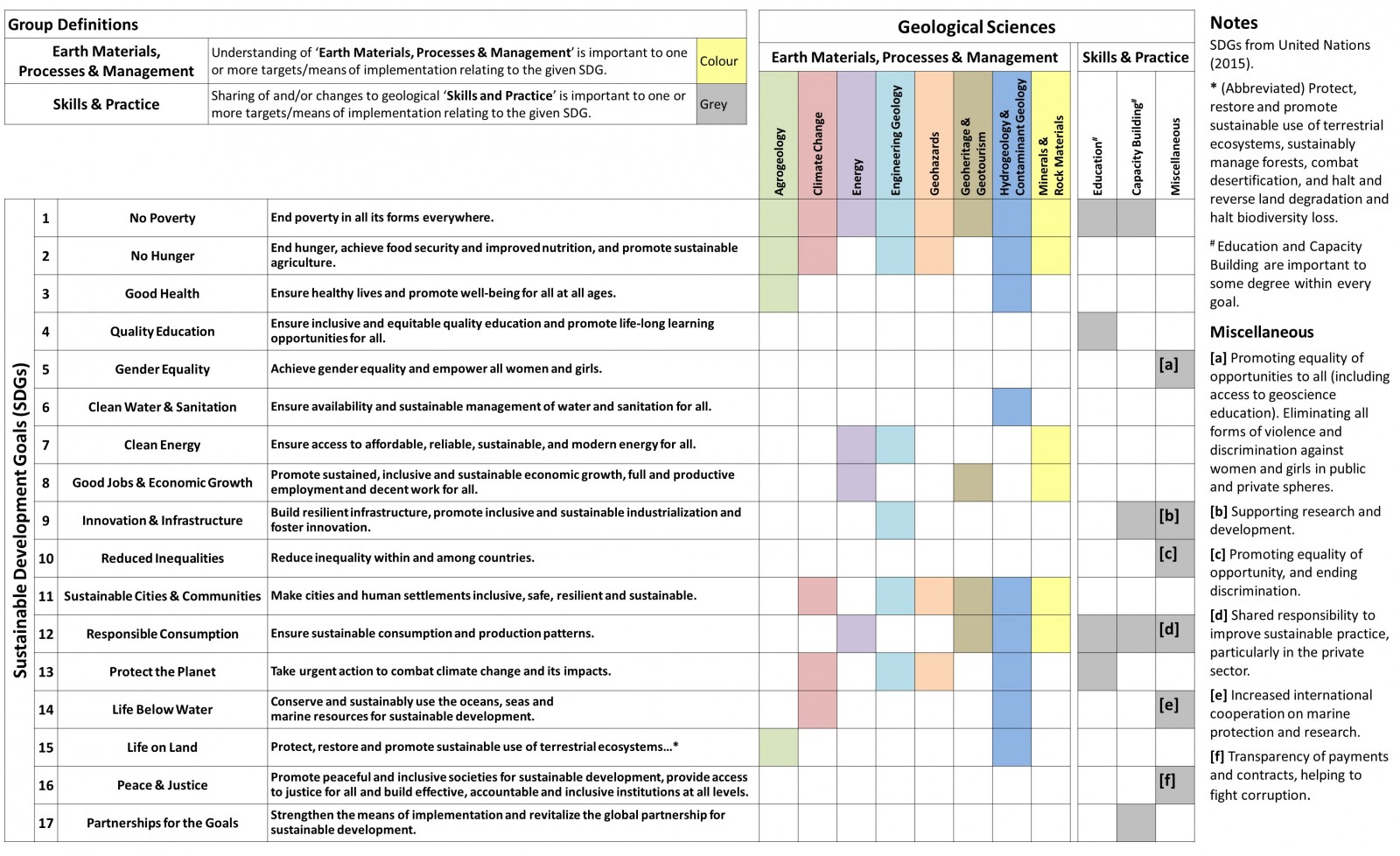We’d like to bring your attention to two new publications, relevant to the theme of this blog. These publications share some common themes, including emphasising the significant role for geoscientists in sustainable development, and enhancing the skills training of geoscientists to support effective and positive engagement. For further information on either of these articles, please contact the corresponding authors.

Delivery of clean water requires an understanding of both geoscience and sustainability concepts (Credit: Joel Gill)
Social Geoscience – Integrating sustainability concepts into Earth science.
Iain Stewart and Joel Gill
Most geologists would argue that geoscientific knowledge, experience, and guidance is critical for addressing many of society’s most acute environmental challenges, yet few geologists are directly engaged in current discourses around sustainable development. That is surprising given that several attributes make modern geoscience well placed to make critical contributions to contemporary sustainability thinking. Here, we argue that if geoscientists are to make our know-how relevant to sustainability science, two aspects seem clear. Firstly, the geoscience community needs to substantially broaden its constituency, not only forging interdisciplinary links with other environmental disciplines but also drawing from the human and behavioral sciences. Secondly, the principles and practices of ‘sustainability’ need to be explicitly integrated into geoscience education, training and continued professional development.
Read more: http://www.sciencedirect.com/science/article/pii/S0016787817300044
Geology and the Sustainable Development Goals.
Joel Gill
This paper presents an overview and visualisation of the role of geology in the Sustainable Development Goals (SDGs). These internationally-agreed goals aim to eradicate global poverty, end unsustainable consumption patterns, and facilitate sustained and inclusive growth, social development, and environmental protection. Through a matrix visualisation, this paper presents a synthesis that relates the 17 agreed SDGs to 11 key aspects of geology. Aspects considered are agrogeology, climate change, energy, engineering geology, geohazards, geoheritage and geotourism, hydrogeology and contaminant geology, mineral and rock resources, geoeducation, geological capacity building, and a miscellaneous category. The matrix demonstrates that geologists have a role in achieving all 17 of the SDGs. Three topics relating to improved engagement by geologists with international development are then highlighted for discussion. These are the development of supporting skills in education, improving transnational research collaborations, and ensuring respectful capacity building initiatives. This synthesis can help mobilise the broader geology community to engage in the SDGs, allowing those working on specific aspects of geology to consider their work in the context of sustainable development. The contribution that geologists can make to sustainable development is also demonstrated to other relevant disciplines, and development policy and practitioner communities.

Geology and the UN Sustainable Development Goals (From Gill JC, 2016, Episodes, used with permission).
Read more (open access): www.episodes.org/view/1835

Aarti
Hello sir.
Your work is commendable. I share your research interest in water projects. Lots to learn from you.